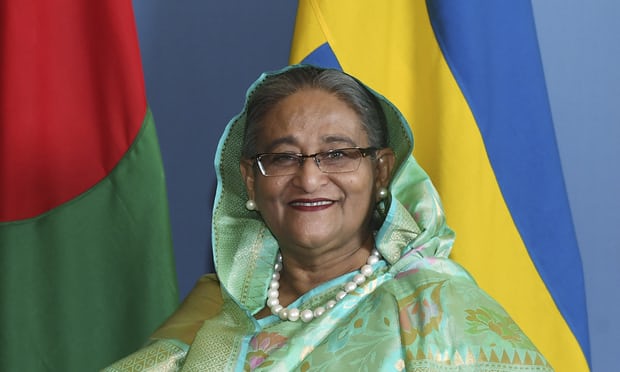Bangladesh’s impressive run in the Champions Trophy, though terminated by a thrashing from India in the semi-final last week, highlighted the cricket team’s striking progress and won deserved applause. This relatively young nation – which only won independence from Pakistan in 1971 – usually gets little credit for its triumphs against the odds. Those obstacles have been numerous, including the legacy of colonialism and the war of independence, and the challenges of safeguarding the world’s eighth-largest population when it is crammed into a delta: at least 150 people are thought to have died in floods and landslides last week. Yet the country has slashed cyclone deaths through better shelters and warning systems, and made impressive strides on health, literacy and poverty alleviation.
Its greatest enemy has arguably been the folly of its own politicians who remain locked in a vicious and sterile feud which has claimed too many lives and squandered opportunities to strengthen the country. Since 1991, leadership has swung between the Awami League and the Bangladesh Nationalist party, each led by dynastic leaders, Sheikh Hasina and Khaleda Zia. The last elections, in 2014, were scarred by widespread violence and have been followed by further attacks on the opposition. Few believe that politics have not played a part in the legal cases against Ms Zia and her son and heir apparent, Tarique Rahman. Earlier this month the former prime minister Moudud Ahmed and his wife, the poet Hasna Jasimuddin Moudud, were evicted from their home. Mr Ahmed, 77, is not only a BNP party elder – but also a lawyer who defended Sheikh Mujibur Rahman, Sheikh Hasina’s father and the country’s founding leader, when what was then West Pakistan charged him with sedition pre-independence. It says much about how Bangladesh’s leaders have wasted its original hopes as they obsess over divisions and ignore common interests.
The crackdown is felt far beyond political circles: the government has targeted broader dissent among writers, scholars and activists too. Four years after the Rana Plaza collapse killed more than 1,100 garment workers, international clothing brands are complaining about the targeting of unions. Meanwhile, violent Islamist extremism has spread amid the atmosphere of animosity and suspicion, and the overstretch of law enforcement. The killing of 20 hostages by militants at a cafe in Dhaka last year finally prompted the government to confront the problem, after shamefully failing to respond to the murders of liberal bloggers, scholars and minorities. Yet, 18 months out from elections, the Awami League appears to be trying to appease conservative forces as it tries to tap a rising, religious lower middle class for votes, fending off an opposition that looks like a more natural home for them.
Both parties need to re-engage with democracy and civil rights, renounce the use of force and pandering to intolerance, and focus on the needs of their people. Tens of millions still live in poverty. Climate change is an immediate and pressing threat. Export growth and remittances are falling; excessive reliance on the garment sector leaves the country vulnerable to external economic shocks. Bangladesh’s people have worked hard for everything they have gained. They deserve much better from their leaders.
This article was amended on 23 June 2017. An earlier version said Moudud Ahmed and his family were evicted after their home was seized by court order. In fact no such ruling was made and they were evicted despite living for 36 years as tenants under a registered lease deed.
